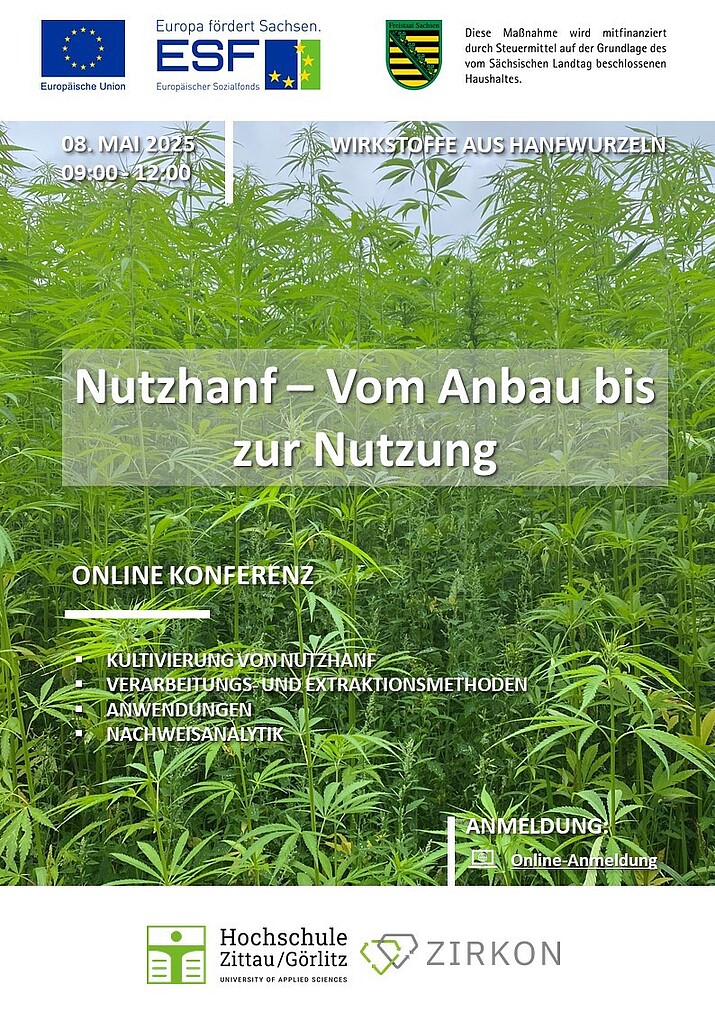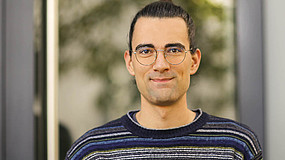On May 8, 2025, the first online workshop on "Industrial hemp - from cultivation to use" took place as part of the European Social Fund (ESF)-funded junior researcher project "Active ingredients from hemp roots". Over 35 participants from science, business and other areas came together to discuss the current state of research, innovative application examples and specific challenges relating to industrial hemp.

Technical background
The hemp plant(Cannabis sativa L.) has been used as a versatile crop since the 17th century - among other things for the production of textile fibers and for soil recultivation. While the flowers of the plant have been the main focus of attention in recent years due to their active ingredients, the roots of the hemp plant have received comparatively little attention to date. Yet the hemp root in particular contains a spectrum of bioactive substances, such as triterpenes and phytosterols, which are of great interest for medical applications.
This series of workshops was initiated by the project "Active ingredients from hemp roots" and is intended to promote the exchange between research and practice. The aim is to present current scientific findings and projects and to strengthen interdisciplinary cooperation.
Workshop procedure and highlights
The workshop began with a short survey, which revealed a wide range of interests: around 44% are already actively working with industrial hemp, while other participants wanted to gain initial insights. Information on possible uses (48%) and processing the plant (33%) was particularly in demand.
At the beginning of the event, the three young researchers Lena Wehnert, Lukas Vesely and Jennifer Dutschke presented their previous research results on the cultivation, processing and analysis of the ingredients of hemp roots and discussed them with the participants.
This was followed by four external specialist presentations that showed further perspectives:
Maciej Kowalski presented the Polish company Kombinat Konopny, which specializes in the production of food supplements and textiles made from hemp - all "Made in Poland".
Nazia Zaffer presented innovative processes for recovering plant-available nutrients and potentially toxic metals from fermentation residues using anaerobic digestion and acid treatment.
Dr. Samir Scandar gave an exciting insight into the world of so-called "NaDES" - novel, environmentally friendly solvents that also represent a promising alternative for hemp applications.
Christiane Hecht reported on ZweiZehn GmbH & Co KG and its patented drying technology, which is used for both industrial hemp and other herbs.
Outlook
The workshop showed how important interdisciplinary dialog is for the further development of sustainable applications of industrial hemp. We would like to thank all participants, speakers and partners for their commitment and look forward to continuing the exchange!

